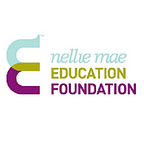Interview Series with Pa’lante’s Romeo Romero Sigle Pt. 1
We got the chance to talk to Romeo Romero Sigle, Assistant Director of Pa’lante in Holyoke, MA, about the history of the organization, Pa’lante’s current youth-led and anti-racist work, and how the group has adjusted their practices and strategy during COVID-19. This is part one of a four-part blog post about Pa’lante.
Pt 1.
Can you start off by giving a basic introduction of Pa’lante?
Pa’lante is a school-based organization that works with students, community members, teachers, and staff to rethink our relationship with the school-to-prison pipeline — dismantle it, work against it, fight for a different way of having education in predominantly communities of color, and develop youth leadership and youth organizing. During the school day we host restorative justice circles that are based in indigenous circle practice. We try to use that practice to repair harm that happens in the building, to give students an alternative to traditional discipline. And then after school we’re thinking about those systemic issues that affect students, like why are students fighting, why are students getting pushed out, why are students suspended? We know it’s because of racism and youth oppression and all the different –isms that affect our world, and students come together every year and choose a specific issue to research and take action on to make the school a better place.
How long have you been at Pa’lante, and what growth have you seen over your time there?
I’ve been with Pa’lante for three years, and a lot has changed. The heart of the program has always been the same which is just building up a liberatory space for young people to exist. But we have grown a lot. We’ve expanded to the second Holyoke High campus [the Dean campus], which is a technical school which has several hundred students, whereas the main campus has 1400 students.
We also have launched this alumni fellowship program, which is really in line with our mission of creating a leadership pipeline that can be an alternative to the school-to-prison pipeline. We were noticing that these students we’d been working with would graduate and sometimes would be just left out to dry; you have this really supportive community at school, and then sometimes that transition out of high school into the “real world” can be hard. So we decided to put resources into creating an option for alumni once they graduate to come back and work for the school, which simultaneously helps them because they get to stay connected and get job experience — but then it’s double wonderful because they’re young folks who have dealt with the struggles that can relate to the students at the school in a way that a lot of the adults who are in the building just don’t.
In the past couple of years we have taken up a lot of projects that have been really successful — there’s tangible positive things that have happened every year when students come together to ask for what they want. This past year, we organized against a random search policy that was proposed, and we ended up rolling back that policy so it’s no longer in place. We were able to create this whole oral history project with what we call the Hidden Legends of Holyoke — those Latinx community organizers who have been there doing the work long before Pa’lante existed and connecting our young folks with older organizers and doing some oral history and getting that into a permanent installation in the buildings so that student have access to their history. So I’ve definitely seen the school change around us as more young people feel empowered to transform their school.
So you mentioned one end of the leadership pipeline as students graduate — but how do students get involved in Pa’lante in the first place?
Students do have to do a written application, then we do what we call an info session, which is an opportunity for them to learn about our work, but also it’s an interview process to see how people are showing up in the space — we do social justice education activities with them and see how folks are engaging with each other. Once someone gets into Pa’lante, they are a peer leader for their entire high school career if they want to be. We do recruitment, we do outreach to all the classes, and then together we just make decisions based off of people’s passion, people’s commitment, diversity in the sense of getting folks from all different parts of the school so that no matter where a conflict arises there’s someone connected to that part of the school. And most students do stay until they graduate.
Next Friday, we’ll explore the meaning of restorative justice, Indigenous circle practice, and Pa’lante’s Youth Participatory Action Research Projects. Stay tuned for more!
